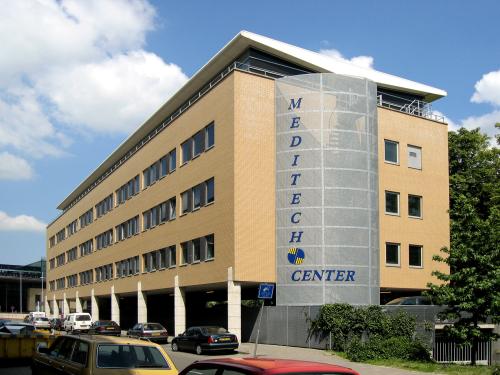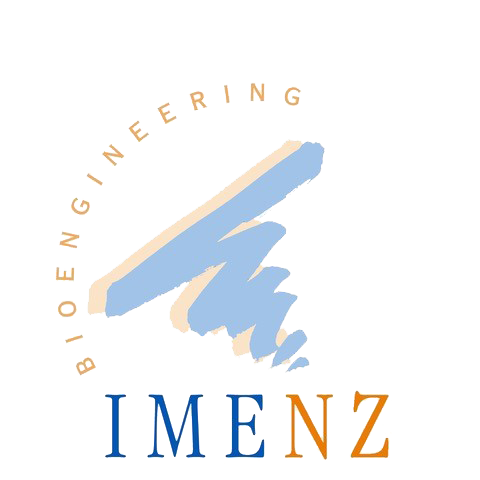Pretreatment/Disruption
In our recent (EU-)projects and in collaboration with clients we have evaluated and developed different disruption methods to e.g. disrupt various species of plants or algae to isolate valuable components, including proteins. Our involvement in the EU-projects MIRACLES and MAGNIFICENT has achieved methodologies for the efficient isolation of valuable algae-cell content and its processing to e.g. highly effective anti-microbial peptides.
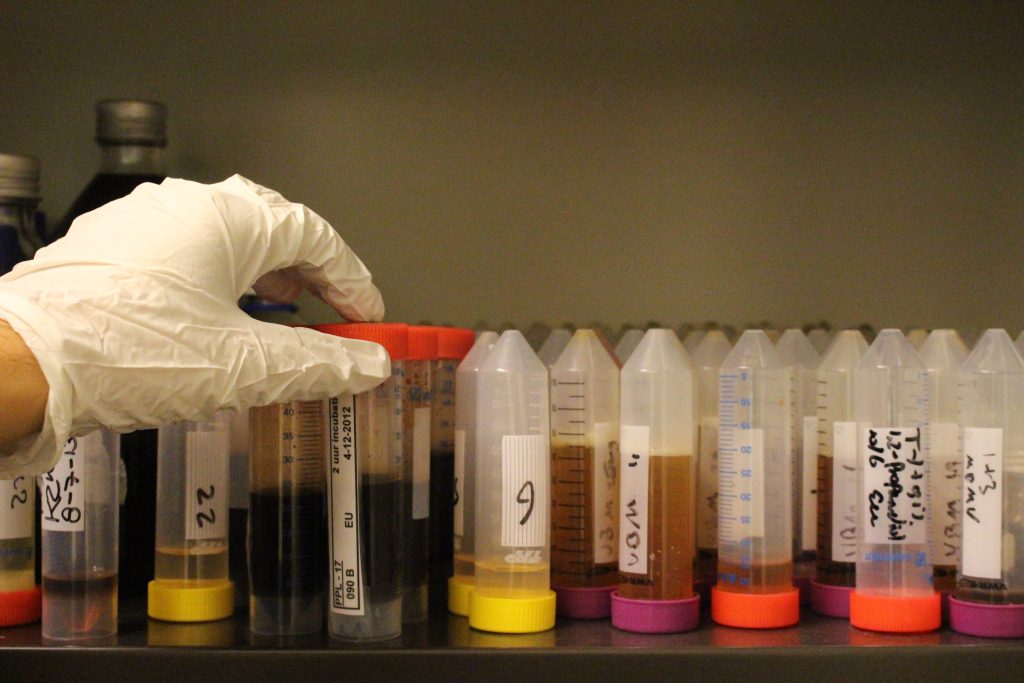
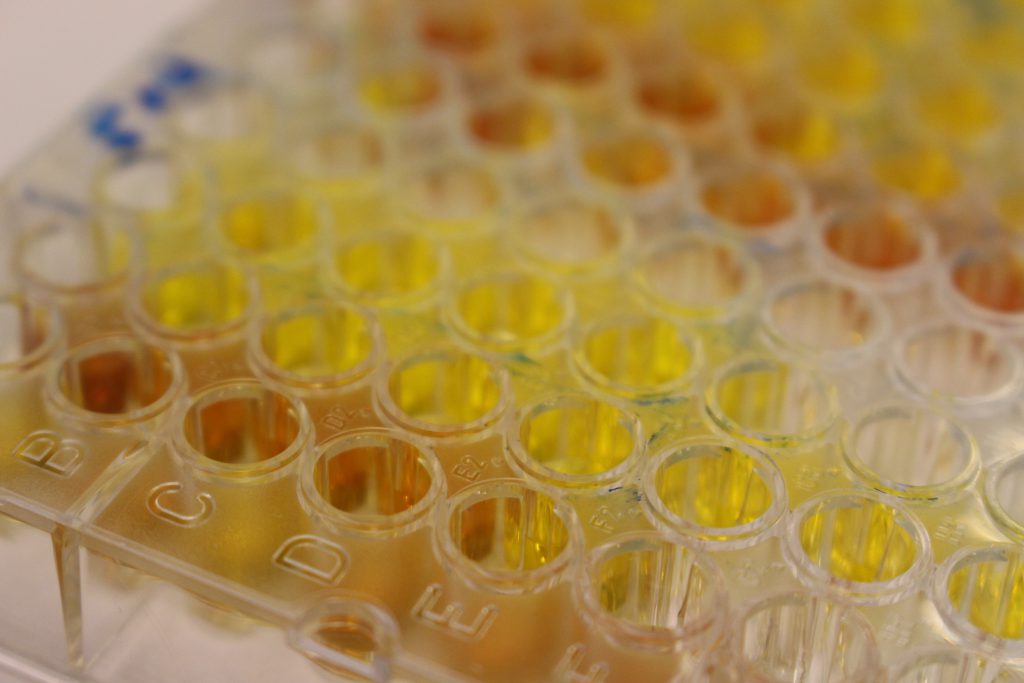
Enzymatic & Microbial Conversion
IMEnz Bioengineering BV provides access to unique libraries of enzyme variants and conducts the screening of these libraries for the selection of biocatalysts with desired properties.
The first library that has been made available contains more than 350 protease variants. The individual biocatalysts exhibit a large variation with respect to stability, pH optimum, substrate specifcity, metal ion dependence, and absolute activity, both in aqueous and in organic environments. This particular class of proteases has been shown to be applicable for many kinds of bioconversion reactions, as diverse as hydrolysis and synthesis. The stereoselectivity of transformations obtained by biocatalysts makes them extremely powerfull for chiral resolution applications.
IMEnz Bioengineering BV utilizes the library for the selection and identification of enzymes with desired or novel properties.
To that goal, IMEnz Bioengineering BV offers the following services:
- development of application-oriented screening procedures
- screening of the libraries for specific biotransformations
- identification of biocatalysts involved
- isolation, production and upscaling of identified, interesting variants
- further improvement of selected biocatalysts by means of protein engineering and or directed evolution
- assistance in obtaining exclusive rights to use selected variants
- assistance in search and operation of new libraries
Other libraries of industrial enzymes, including chitinases, esterase, lipases and sugar-modifying enzymes are or will become available in due time also.
Value upgrading of by-products & waste streams
Most industrial processes yield low value byproducts and waste streams. These streams often contain potentially valuable components, such as proteins or carbohydrates, but the processes for efficient recovery of these products are lacking. Bioconversion, e.g. by the application of microorganisms or enzymes (biocatalysts), has attracted increasing attention as a possible means to decrease the environmental burden of industrial waste streams, and, moreover, to convert these to potentially valuable products.
For example, IMEnz has developed an enzymatic process to produce glucose from return-bread with an efficiency of 98%. This glucose product is applied in various fermentation processes.
IMEnz Bioengineering BV develops biocatalyst-driven processes to convert industrial waste streams into valuable products. Microorganisms and/or enzymes are the key elements to such bioconversion processes. Processes are preferably developed in close collaboration with clients, to share essential knowledge that is needed for success.
For example, the loss of costly biocatalysts in these processes due to inactivation and flushing out, can be prevented by binding enzymes to stable carriers. The additional advantage of immobilized biocatalysts is that they are mostly much more stable to harsh process conditions. As a result, economically sound and environmental friendly production of high-value products from (relatively) cheap materials could become feasible by making use of the skills and experience of IMEnz Bioengineering.
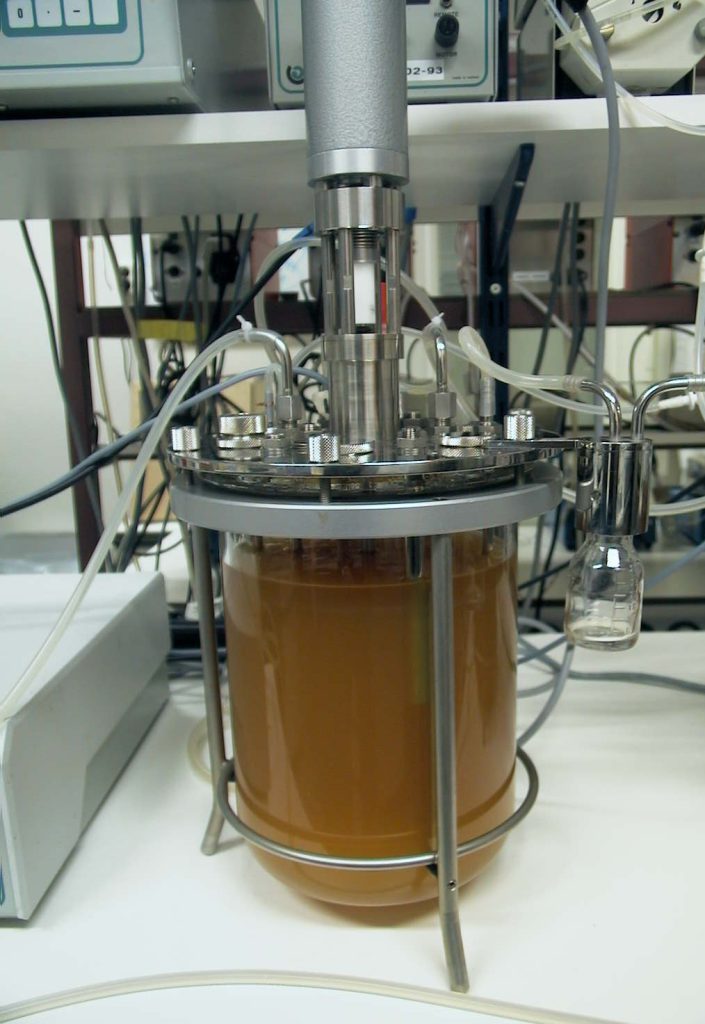
Protein Valorization
IMEnz has great expertise in protein valorisation by screening hydrolysed proteins for functional properties, such as specific hydrolysates that maximise growth (rate) during fermentation or peptides with anti-microbial and antioxidant activity. Several products were developed via this strategy: tailor made fermentation additives, resulting in specific improvement of fermentation process of our customer, as well as the discovery of numerous natural anti-microbials that inhibit specific species or entire groups of microorganisms.
Contact us
